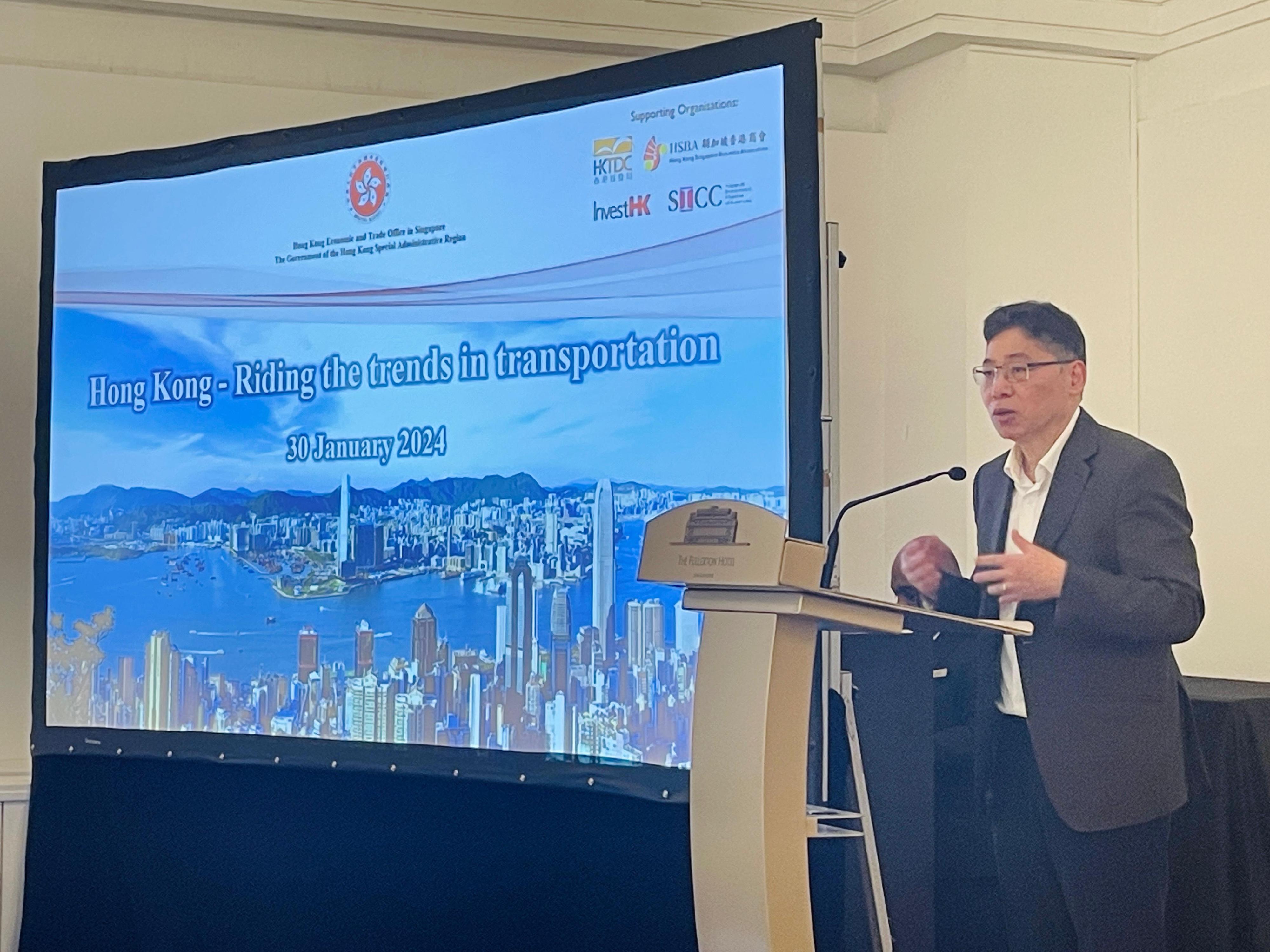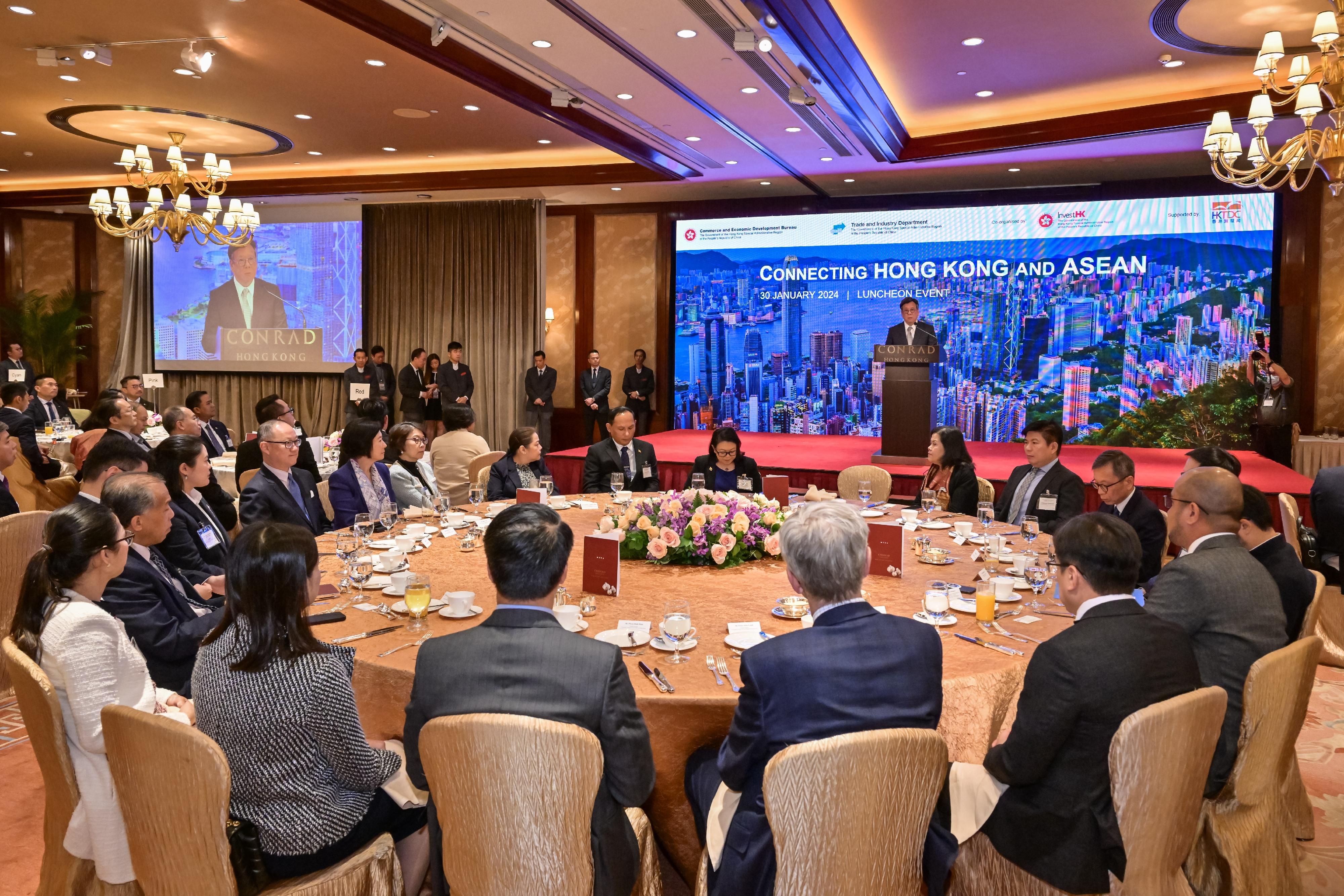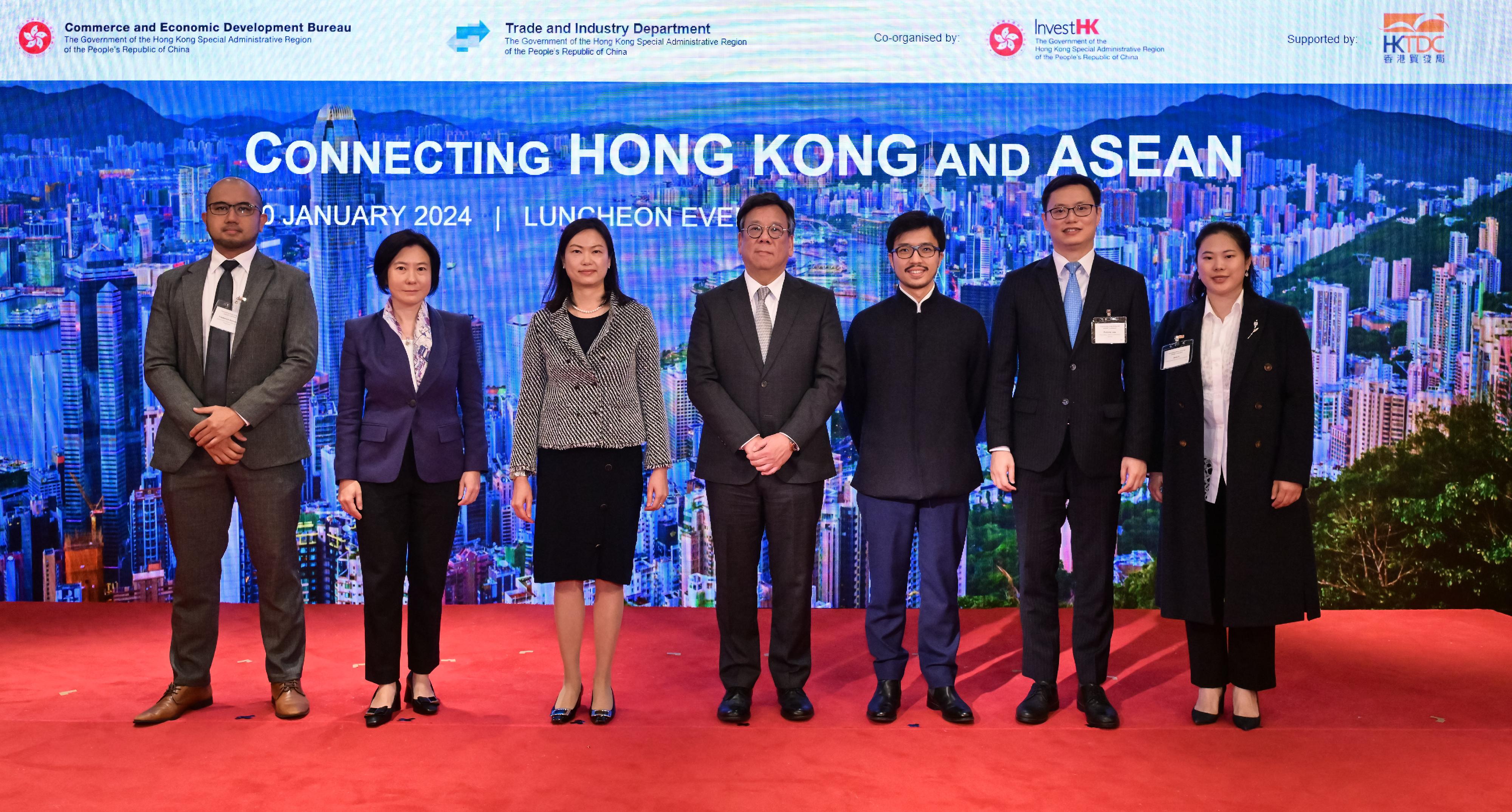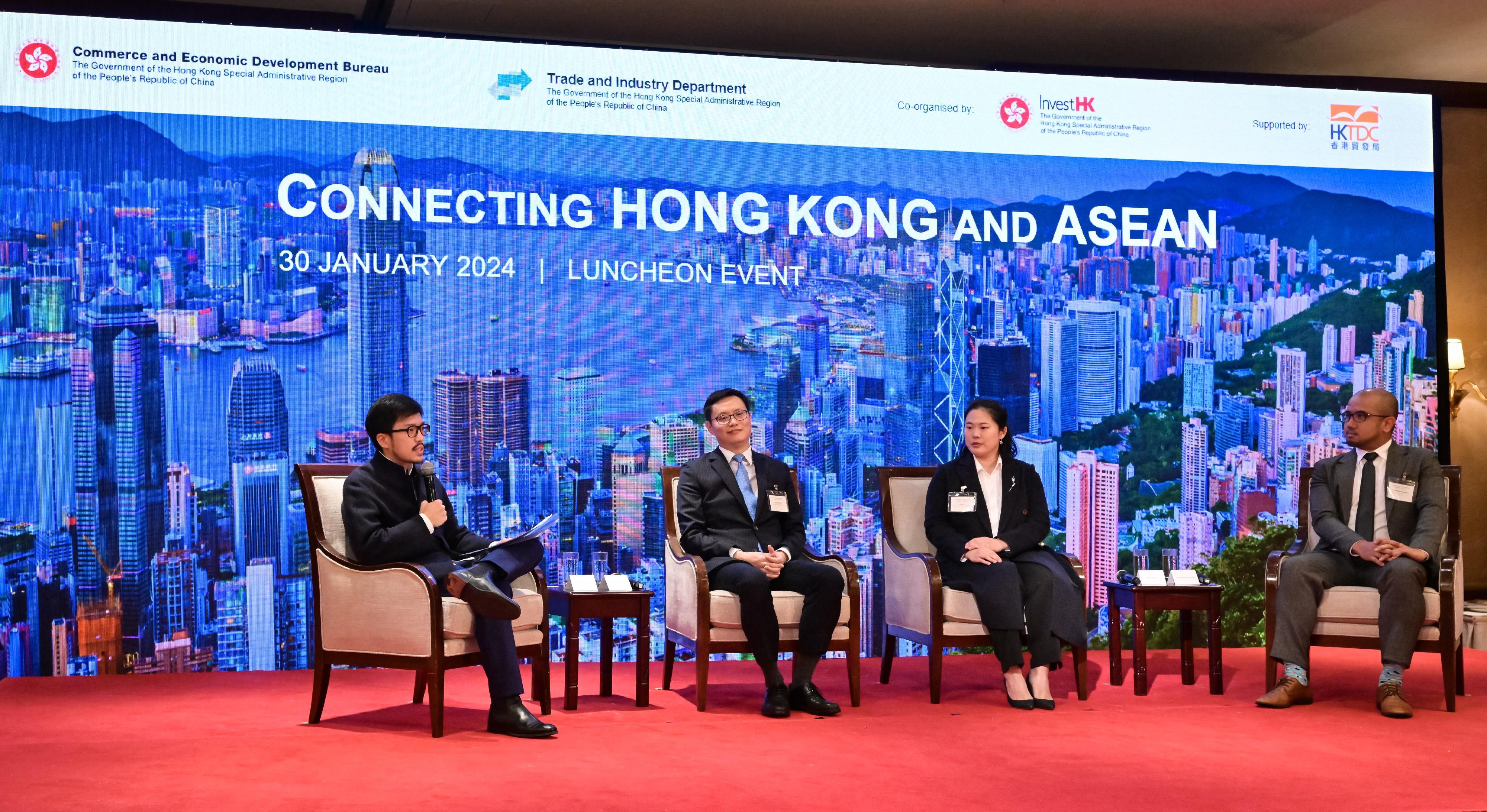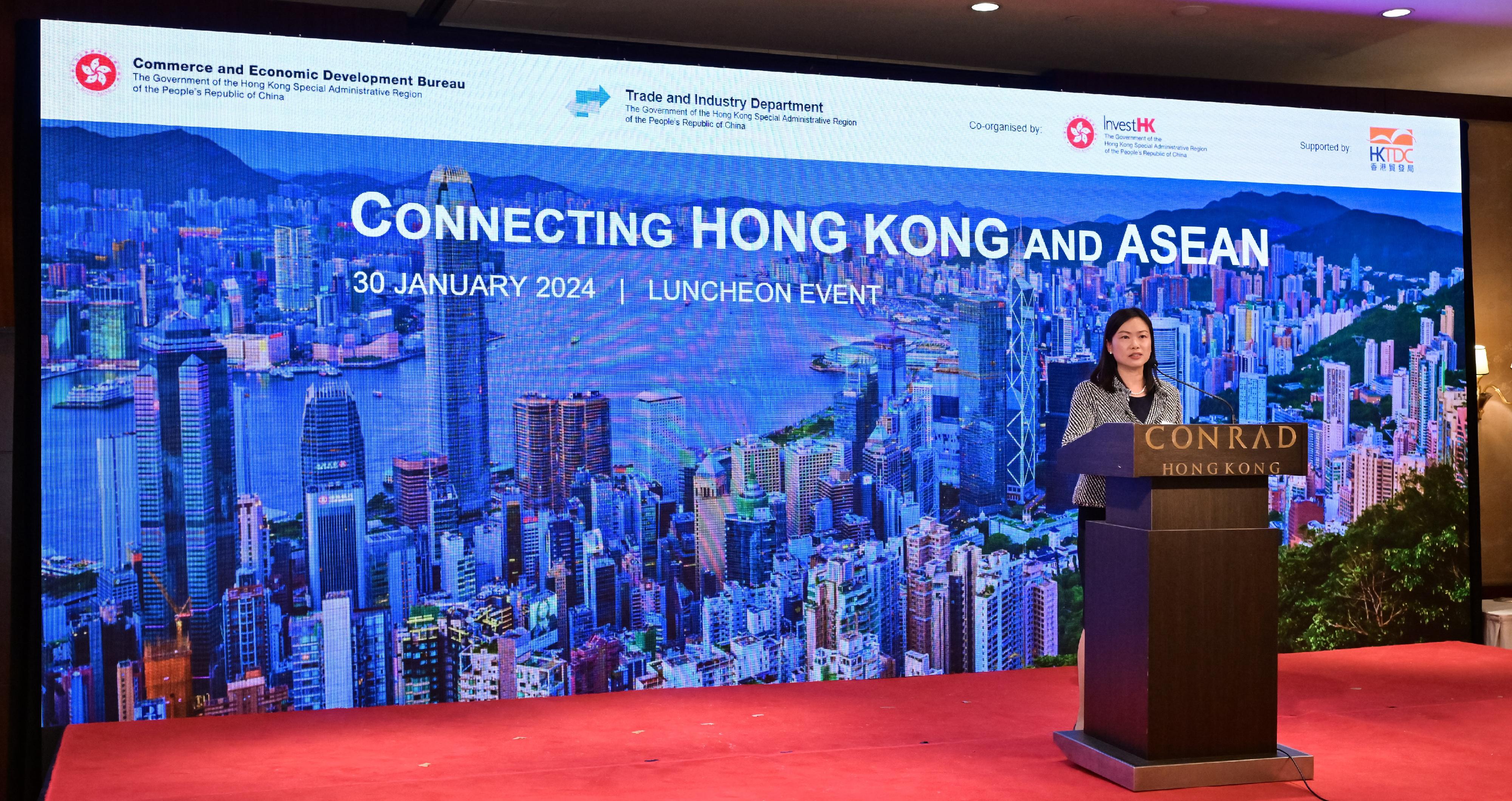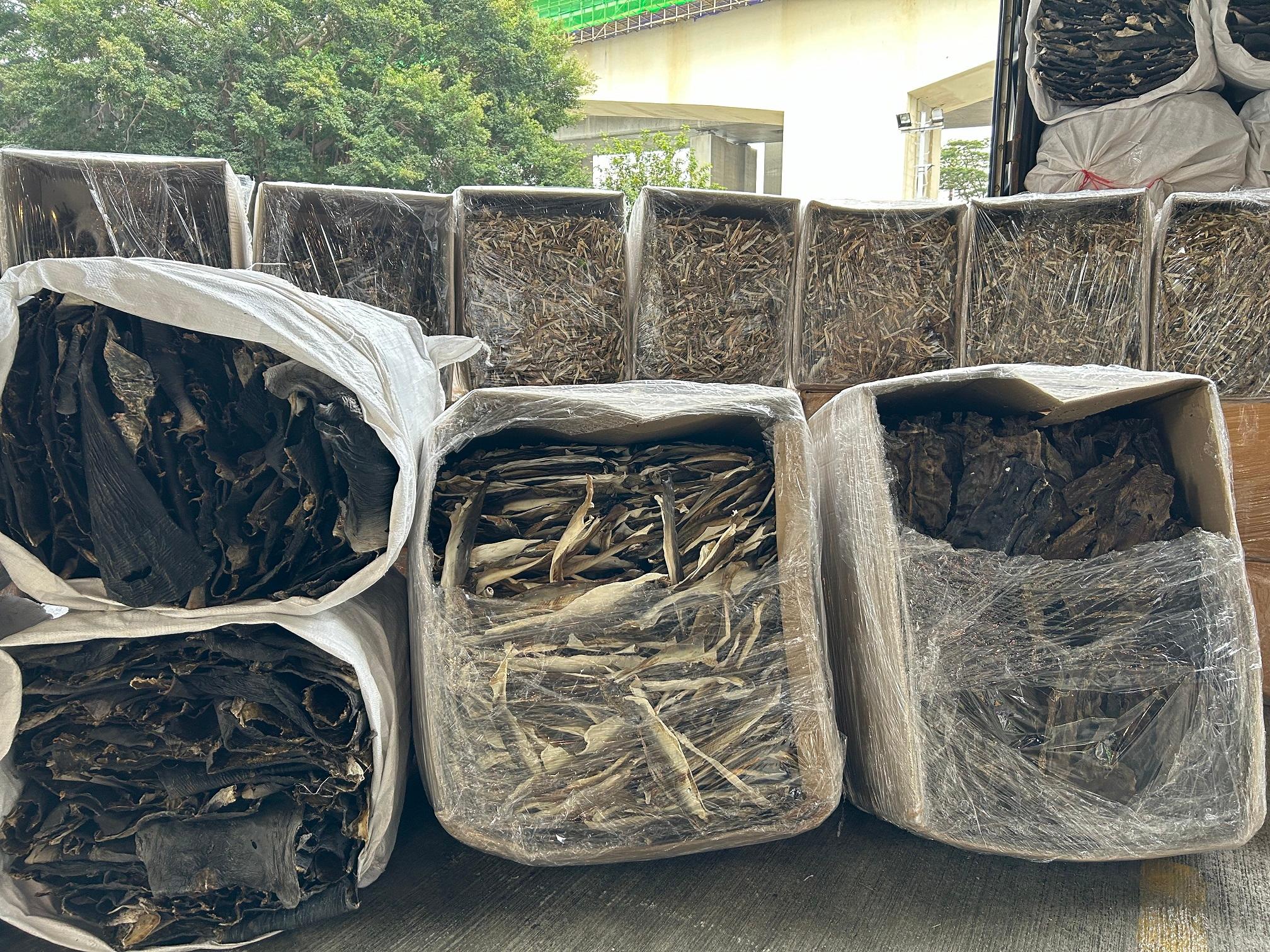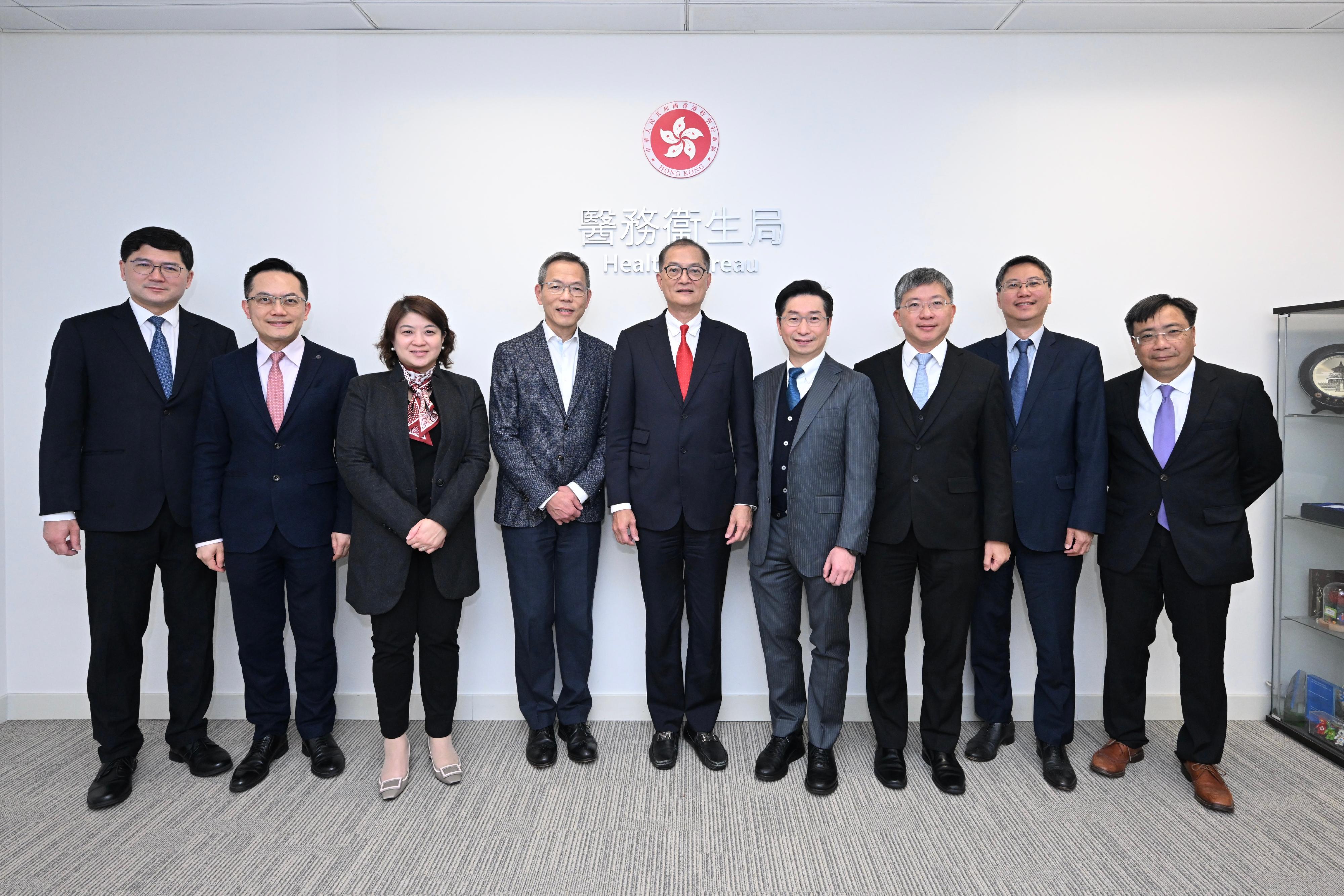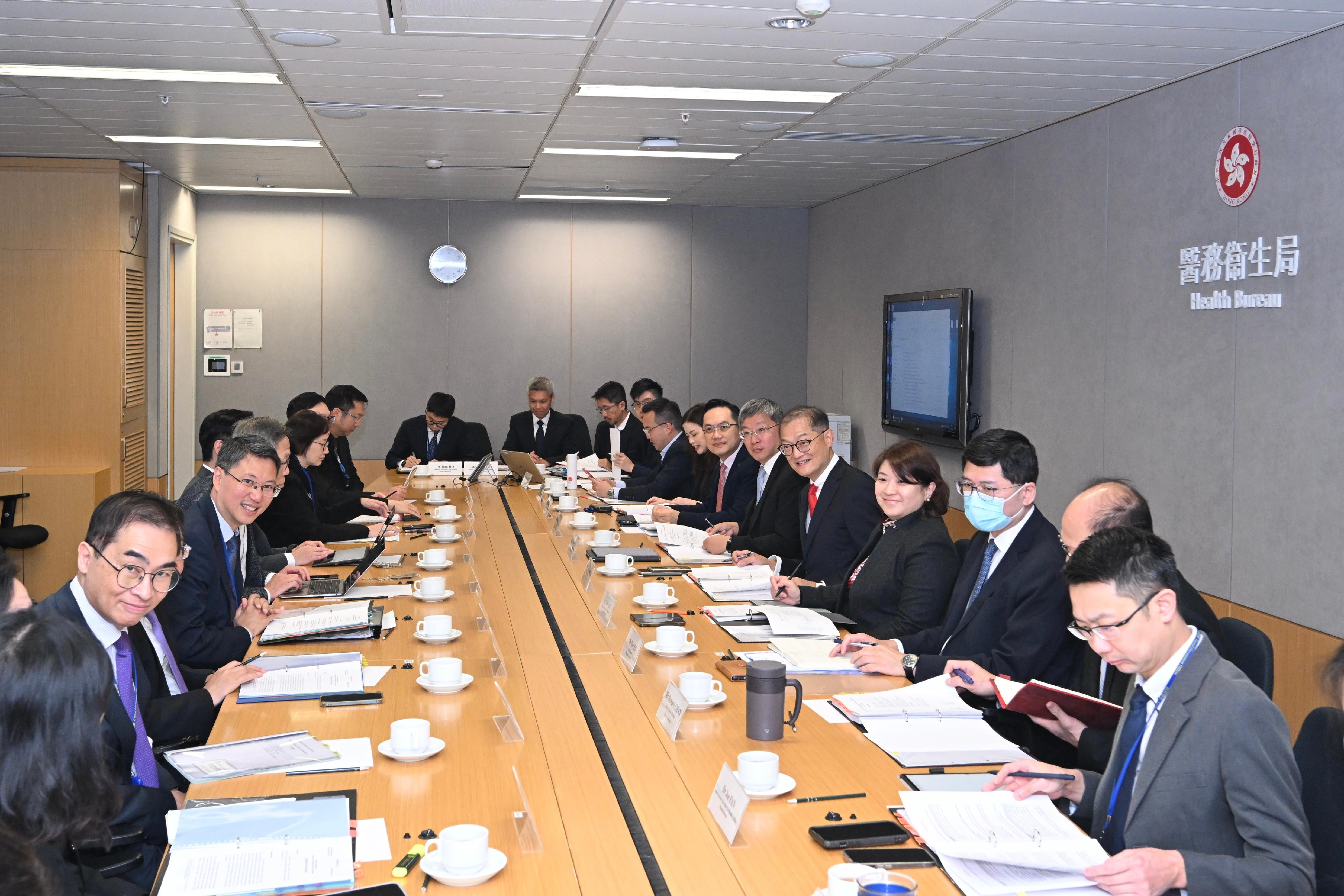Speech by STL at Hong Kong – Riding the Trends in Transportation business luncheon (English only) (with photo)
Following is the speech by the Secretary for Transport and Logistics, Mr Lam Sai-hung, at the Hong Kong – Riding the Trends in Transportation business luncheon in Singapore today (January 30):
Distinguished guests, ladies and gentlemen,
Good afternoon. In fact, Singapore is not too new to me. I worked in the Development Bureau five or six years ago. The Development Bureau is equivalent to the MND (Ministry of National Development) of Singapore, looking after infrastructure development. I was the Permanent Secretary for Development (Works), looking after the construction sector. From 2018 to 2020, I used to stay several days here, conducting visits to Singapore's construction industry. I have learnt a lot and actually brought something back to Hong Kong. But I am now wearing a different hat, looking after transport and logistics. Just like the Ministry of Transport in Singapore, the portfolio that I cover includes local transport, the regulation of operators, airport, ports and the associated operations in logistics. I am delighted to be here today to meet different people, who are a bit different from those I met before, and I am delighted to be back to the Lion City in just six months since the Chief Executive's visit, with a HKSAR (Hong Kong Special Administrative Region) Government and business delegation, last July. Thank you for the opportunity for sharing with all of you today the latest trends in transportation that we are witnessing, and opportunities awaiting us to exploit.
The year-round summer-like weather and the warm hospitality of the people in Singapore have been a pleasant contrast to the relatively cold spell my colleagues and I experienced back home in Hong Kong last week. Actually there were two or three days last week we experienced temperature of about 4 to 5 degrees Celsius in the morning and probably a peak of around 9 to 10 degrees Celsius in the afternoon. It was extreme and for Hong Kong's standard, it should be regarded as cold. However, the occasional sudden rainfall brought by the monsoonal climate here also serves as a reminder of the unstable global economic outlook in the year of 2024.
Global trends in aviation, maritime and logistics
The World Bank's latest Global Economic Prospects report projected the global growth to slow for the third consecutive year, from 2.6 per cent last year to 2.4 per cent in 2024. Trade growth this year is expected to be only half the average in the decade before pandemic.
While the risk of a global recession has diminished, mounting geopolitical tensions have loomed large in global stability. The lingering geopolitical risks in Ukraine, the Israel-Gaza conflict, among other regional conflicts, brought disruptions to the global order.
Here in Asia, the economic and financial situation remains rather stable, and some even expect strong growth.
Despite this, in wake of the COVID-19 epidemic, the world of aviation, maritime and logistics has undergone significant changes. We have seen a wave of new transformations in both the regional and international landscapes. Multinational companies have been seeking risk diversification strategies, leading to the emergence of new trade patterns and supply chains. Consumers are increasingly demanding just-in-time deliveries. International trade is getting ever more intricate, necessitating greater professional support from various industries.
In the meantime, the extreme climate conditions that the world has been experiencing has made it more urgent than ever to address the problem. As an English saying goes, "We do not inherit the Earth from our ancestors, we borrow it from our children." Climate change has emerged as one of the top policy considerations, with a consensus spanning across countries.
Against the above backdrop, "go green" and "go smart" have become the buzzwords worldwide, regardless of the industry one finds themselves in.
Multimodal connectivity
With this in mind, we have recently launched two action plans, one on modern logistics development, and another on maritime and port strategy, in Hong Kong in the last quarter of 2023, to embrace the irreversible trends of smart solutions, modernisation, green and sustainability.
One of our key focuses is leveraging our advantage in multimodal transport, optimising our world-class airport with strong cargo performance, comprehensive land crossings to different parts of the Guangdong-Hong Kong-Macao Greater Bay Area, or GBA in short, and our well-developed port facilities with frequent liner shipping services, connecting to nearly 500 destinations worldwide through more than 300 international vessel sailings per week.
The pace of boosting multimodal cargo transhipments between Hong Kong and Mainland China is gathering steam, as we continue with our pilot scheme for sea-air intermodal cargo transhipment between Hong Kong International Airport (HKIA) and Dongguan, China, with the first phase development of a permanent facility of a dedicated logistics park in Dongguan for this transhipment mode targeted for completion by the end of 2025. Furthermore, several air cargo facilities have come into service since last year. This includes DHL completing the expansion of its Central Asia Hub in Hong Kong; the debut of the premium logistics centre, Cainiao Smart Gateway; and UPS announcing its investment in a new express hub facility at the HKIA.
On the sustainability front, we will kick off the feasibility study on providing bunkering of green fuels such as the LNG (liquefied natural gas), green methanol, hydrogen and ammonia, for both local and ocean-going vessels, with a view to developing Hong Kong into a high-quality green fuel bunkering centre. With the increasing use of sustainable aviation fuel (SAF) by airlines around the world, the Airport Authority Hong Kong will also formulate an action plan to drive the use of SAF in our city and we will monitor the development trend closely for forward-looking planning.
Continuing advancements in aviation infrastructure
Over the past years, we have introduced a host of initiatives ranging from tax concessions targeting key maritime sectors, to collaborations with international maritime organisations and port cities in the GBA. These efforts have helped navigate us through the shifting currents in the global maritime and logistics industry.
Turning to aviation, the story is different. Global air traffic is experiencing a strong rebound as the COVID-19 pandemic recedes. In the case of HKIA, daily passenger throughput reached 70 per cent of pre-pandemic level by the end of last year, peaking at 80 per cent during the Christmas period. It is expected to fully recover by the end of this year, on pace with other airports in Asia.
With the pandemic now behind us, Hong Kong is going all out with the further development of our aviation hub to raise its competitiveness. Among others, we are pursuing the development of the Three-Runway System for our airport, which upon full commissioning will allow HKIA to reach the target of handling 120 million passengers and 10 million tonnes of cargo per year by 2035.
We are already reaping from our investment, with the third runway of our airport opened since 2022, and new infrastructure that allows passengers to travel between HKIA and other GBA cities seamlessly and effortlessly by land and by sea without the need to go through Hong Kong's immigration process commissioned in late 2023. This year, we will see the completion of the Three-Runway System, while the much-anticipated automated carparks at HKIA will open their doors to self-drive passengers from neighbouring Guangdong and Macao wishing to fly to international destinations through our aviation hub.
What Hong Kong means to Singaporeans
Ladies and gentlemen, Hong Kong and Singapore share so many similarities, and we enjoy a constructive relationship defined by synergy and co-operation. In 2023, Singapore was Hong Kong's fourth-largest trading partner, and reciprocally, we were your fifth-largest trading partner. Despite our similarities, I must point out that Hong Kong has all along been Singapore's bridgehead to Mainland China. In last year, around 8 per cent of the total merchandise trade between Singapore and Mainland China, amounting to over 11 billion Singapore dollars (HK$67.1 billion), was routed through Hong Kong.
As the world's second largest economy, it goes without saying that there are tremendous business opportunities in the China market. Let alone the GBA market, an emerging economic powerhouse that covers nine major cities in the Guangdong Province, plus the Special Administrative Regions of Hong Kong and Macao. The region accounts for a population of over 86 million and includes a high proportion of middle-class families, all of whom are potential customers and investors.
Hong Kong has much to offer as one of the most highly service-oriented economies and with decades of know-how in doing business with both Mainland China and the world. Accompanied by our unique edge and the institutional strength of "one country, two systems", along with our long-renowned professional services, we look forward to welcoming more of our Singaporean friends to tap into the immense potential of the growing Chinese and ASEAN (Association of Southeast Asian Nations) markets.
Concluding remarks
In weathering a crisis, we see our resilience grow. Hong Kong has undoubtedly faced challenges in the past few years but is now returning to normalcy. We are prepared to sail through the ebbs and flows the global economy expected in the near future.
Amidst all the uncertainties ahead, one thing is certain: Hong Kong is back on stage and we are more than ready to welcome visitors from around the world. I am not sure if any of you are a soccer fan like I am. I was thrilled that Hong Kong hosted an exhibition football match last week featuring all-time legends Ryan Giggs' and Michael Owen's teams, and Lionel Messi together with Inter Miami CF will be coming to Hong Kong this weekend and they will play a game with Hong Kong's team this Sunday.
Back to business, we will be holding the Hong Kong Maritime Week, an annual flagship event on the global maritime calendar, from November 17 to 23 this year. Throughout the week, there will be a series of events that bring together leading professionals, policymakers and stakeholders from around the globe to exchange insights about the future development of the maritime industry. May I take this opportunity to extend my invitation to all of you and I look forward to seeing you in Hong Kong very soon.
In the lead up to the Lunar New Year, I wish you all a fortunate and prosperous Year of Dragon ahead. Thank you.
